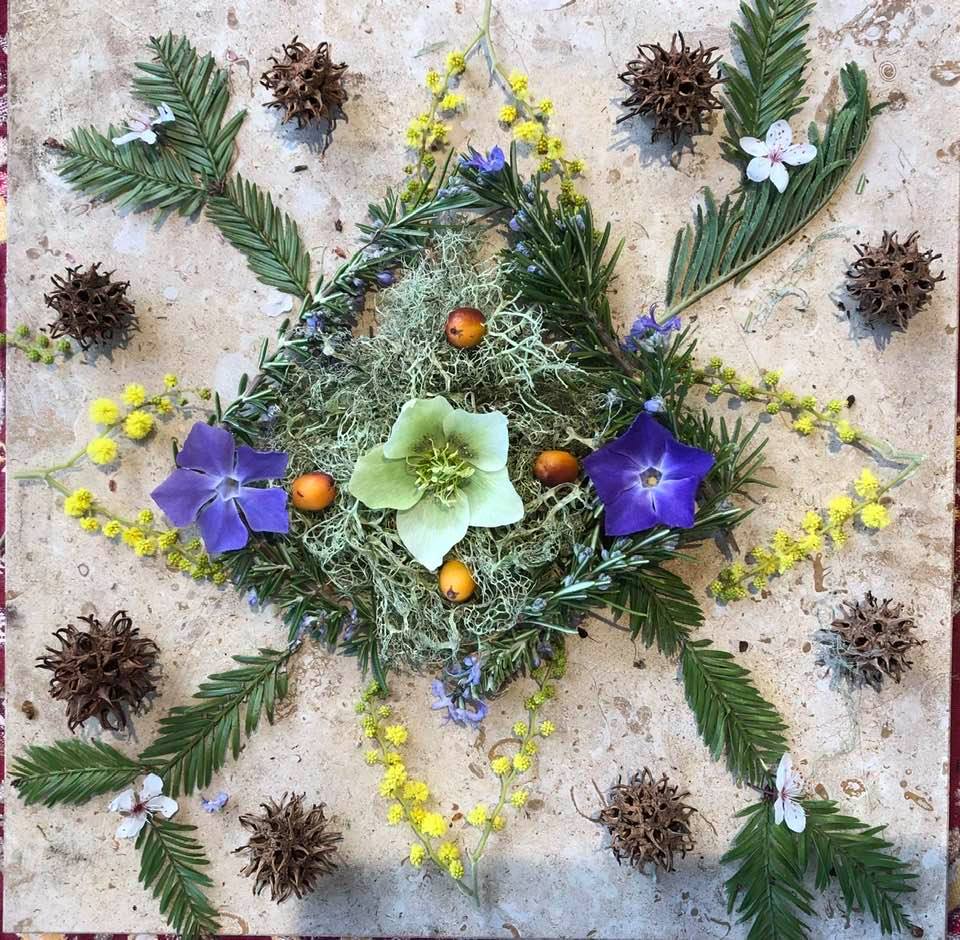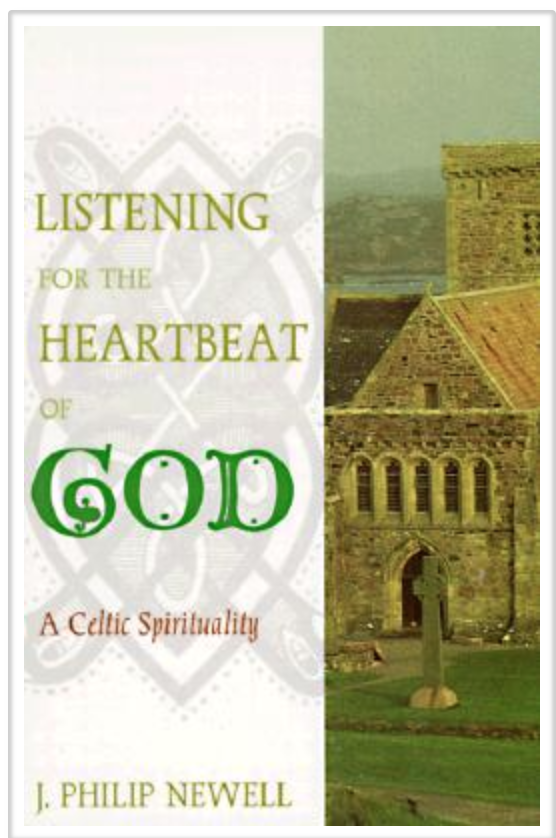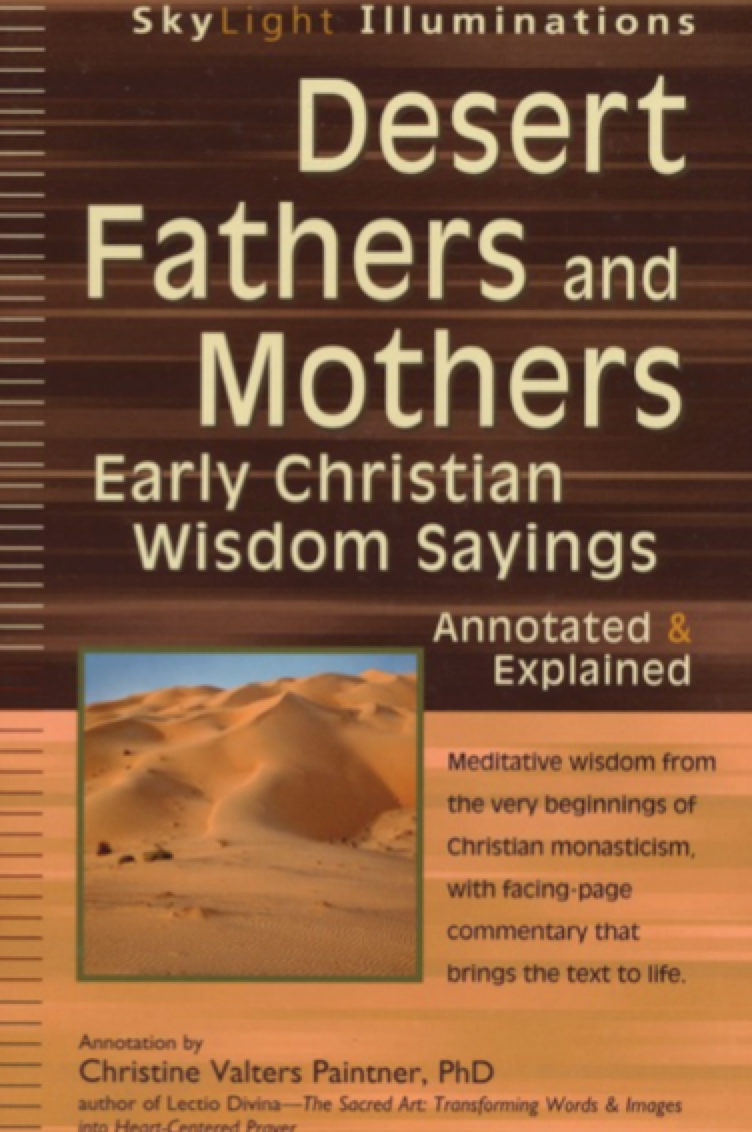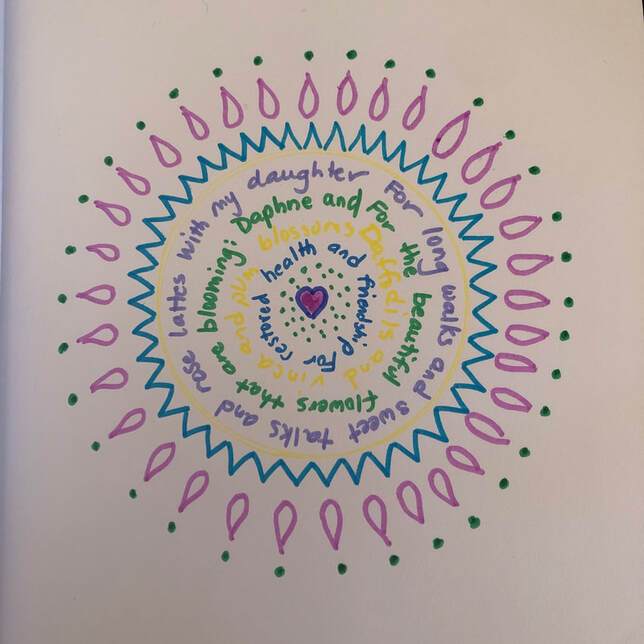The Heart's Flowering and Abundance:
The Desert Fathers and Mothers; Veriditas and Ariditas; Virtues and Vices
Watch video of Week Two here
In the spiritual tradition that flows from Egypt to France to the Celtic islands, the emphasis is not on Original Sin by rather Original Blessing. In this worldview, nature is good and glorious. Where we err is when we become unnatural, like a tree that grows crooked because of circumstance. WE need to learn to open and grow towards the light, to cultivate the pathway of virtue and tune our hearts to the Good, the True and the Beautiful
In this view, the seed of goodness and beauty is planted inside the depths of each human heart. We need to connect to the Root of Goodness, and then, like an exquisite vineyard or tree, we will blossom, grow and bear fruit. The nature of a human being fully awake and alive, in Hildegard's view, is to become a fountain of creativity, a blossoming branch. In her theology, the best example of the Greening Power of God is Mary who, because she was so deeply rooted in the divine, bore the fruit that was Jesus.
What are the practices that can nourish our own inner flowering? Silence, song, study, connection with the natural world are the things to cultivate so that we can open the doors of our imaginations and take root in our hearts so that we might become "monos" ( "singular"), at one with our selves and in tune and living in harmony with the Divine Symphony.
HIldegard believed that the practice of music and chanting was our "best hope to hear the Celesital Symphony again". In this antiphon she composed, notice the profliferation of imagery drawn from nature.
Psalm antiphon for the Virgin (D 155r) by Hildegard of Bingen, sung by Catherine Braslavksy
O frondens virga,
in tua nobilitate stans
sicut aurora procedit:
nunc gaude et letare
et nos debiles dignare
a mala consuetudine liberare
atque manum tuam porrige
ad erigendum nos.
O blooming branch,
you stand upright in your nobility,
as the dawn breaks on high:
Now we rejoice now and are glad.
Lift us up, we pray,
and liberate us
from the bad habits of our age;
stretch forth your hand
to lead us aright.
Here is a fabulous link to the International Hildegard of Bingen Society, with lyrics, performances and music of Hildegard.
Psalm antiphon for the Virgin (D 155r) by Hildegard of Bingen, sung by Catherine Braslavksy
O frondens virga,
in tua nobilitate stans
sicut aurora procedit:
nunc gaude et letare
et nos debiles dignare
a mala consuetudine liberare
atque manum tuam porrige
ad erigendum nos.
O blooming branch,
you stand upright in your nobility,
as the dawn breaks on high:
Now we rejoice now and are glad.
Lift us up, we pray,
and liberate us
from the bad habits of our age;
stretch forth your hand
to lead us aright.
Here is a fabulous link to the International Hildegard of Bingen Society, with lyrics, performances and music of Hildegard.
Part of the "Rhythym of the Heart" is to observe cycles of fasting and feasting. Much of Hildegard's music was written as preludes to the singing of the psalms for Feast Days. During this time of Lent, it might be a worthwile practice to consider the idea of "fasting" . It does not have to be food! Here are some other ideas that might lead to that cherished monastic virtue: equanimity.
Fast from:
Excess consumption and materialism
Gossip
Harsh words and Judgmentalism
Violent images and ideas
Anger and Bitterness
Sadness and Depression
Laziness, Flightiness and Distraction
The need for praise and attention (Vainglory)
Pride
Feast on examples of :
Gratitude
Inner Discipline
Faithfulness, Steadfastness
Humility
Simplicity
Reverence
Compassion and Mercy
Generosity
Courage
Patience
Who are people (in your immediate life, throughout history, even in fiction) who embody the virtues you wish to cultivate? Consider making a study of their lives and words during this Lenten period.
Other Lenten Disciplines:
Weave your days with music, poetry and silence three times a day to ”tune your heart to the Good”
Create your own “illuminated manuscript” or document the beauty you find each day by posting photos on Facebook or Instagram
Try turning mundane tasks into a prayer, repeating a word of virtue, a psalm or a poem as you fold laundry, shovel snow, chop vegetables
Do check out this website, where you will find a wealth of information about HIldeagrd's natural medicine, including diet and nutrition
Here is the website of Gratefulness.org, founded by the Benedictine monk Brother David Steindl- Rast, a pioneeer (along with Thomas Merton) in the Buddhist- Christian dialogue and my example this week of the Virtue of Gratitude.
Fast from:
Excess consumption and materialism
Gossip
Harsh words and Judgmentalism
Violent images and ideas
Anger and Bitterness
Sadness and Depression
Laziness, Flightiness and Distraction
The need for praise and attention (Vainglory)
Pride
Feast on examples of :
Gratitude
Inner Discipline
Faithfulness, Steadfastness
Humility
Simplicity
Reverence
Compassion and Mercy
Generosity
Courage
Patience
Who are people (in your immediate life, throughout history, even in fiction) who embody the virtues you wish to cultivate? Consider making a study of their lives and words during this Lenten period.
Other Lenten Disciplines:
Weave your days with music, poetry and silence three times a day to ”tune your heart to the Good”
Create your own “illuminated manuscript” or document the beauty you find each day by posting photos on Facebook or Instagram
Try turning mundane tasks into a prayer, repeating a word of virtue, a psalm or a poem as you fold laundry, shovel snow, chop vegetables
Do check out this website, where you will find a wealth of information about HIldeagrd's natural medicine, including diet and nutrition
Here is the website of Gratefulness.org, founded by the Benedictine monk Brother David Steindl- Rast, a pioneeer (along with Thomas Merton) in the Buddhist- Christian dialogue and my example this week of the Virtue of Gratitude.
Recommended Readings:
Desert Fathers and Mothers, Christine Vaulter Paintner
In the Heart of the Desert: The Spirituality of the Desert Fathers and Mothers, John Chryssavgis
The Alphabetical Collection, Benedicta Ward
Conferences, John Cassian
Listening to the Heartbeat of God, John Philip Newell
Desert Fathers and Mothers, Christine Vaulter Paintner
In the Heart of the Desert: The Spirituality of the Desert Fathers and Mothers, John Chryssavgis
The Alphabetical Collection, Benedicta Ward
Conferences, John Cassian
Listening to the Heartbeat of God, John Philip Newell
Contact Kayleen Asbo: [email protected]




